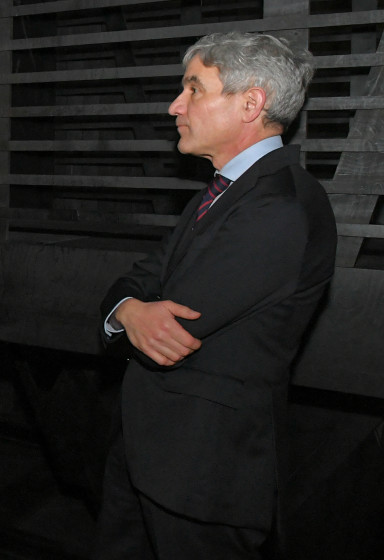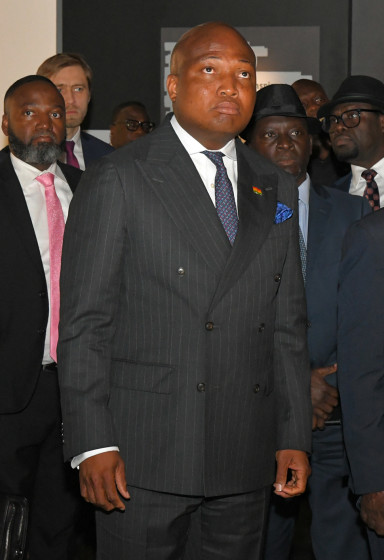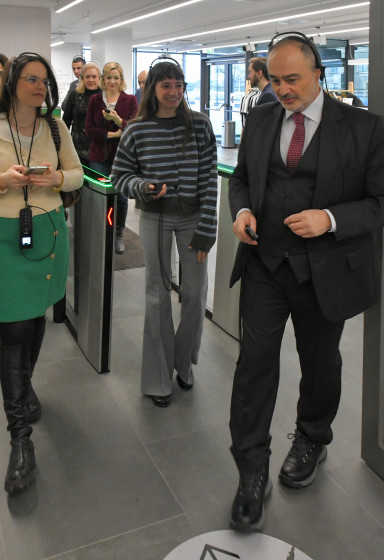Donate to Museum
Each donation helps to ensure the Museum's activities, allowing it to function and provide information for people from all over the world.
The Museum is grateful to each donor and invites everyone to contribute.
Paul Goble: NO FINAL VICTORIES, NO FINAL DEFEATS: LATVIA ON THE 75TH ANNIVERSARY OF MOLOTOV-RIBBENTROP

I deeply regret that health problems preclude my being with you today. Latvia and the Baltic countries more generally have been at the core of my life for many decades, and I wanted very much to be in Riga to mark this anniversary – Paul Goble
The Molotov–Ribbentrop Pact concluded between Joseph Stalin and Adolf Hitler 75 years ago today is generally regarded as the greatest tragedy in the history of Latvia in the twentieth century. It was certainly a tragedy for Latvia; but at the same time, it sowed the seeds of the greatest geopolitical defeat of Moscow in that same century, leading to the demise of the USSR and pointing to the looming disintegration of the Russian Federation.
That is because Stalin’s overreach, his illegal occupation of Latvia, her two Baltic neighbors, and Western Ukraine, Western Belarus and Moldova, ultimately made the Soviet Union ungovernable, opened the way for the three Baltic countries to become part of NATO and the European Union, and set the stage for the ongoing revolution in Ukraine, a series of events that today puts Latvia in a better position than it has been at any point in the last hundred years but also serves as a reminder that for Latvia as for all countries there are no final defeats just as there are no final victories.
Today, I would like to focus on this duality not only concerning the Molotov–Ribbentrop Pact itself but also for Latvia today given the nature of the threats and opportunities it faces and about Latvia in the future given the radically changing nature of the world in which Latvia is going to find itself in the coming decades.
Misreading Molotov–Ribbentrop
So much has been written and said about the Molotov–Ribbentrop Pact and especially the secret protocols by which Hitler and Stalin divided Eastern Europe and opened the way for World War II that it is surprising that the three most intriguing and arguably important consequences of that accord have been neglected.
First, the most important result of the pact was not in Europe but in Japan. As a result of the pact and feeling betrayed by Hitler, the government in Japan fell and was replaced by one that did not invade the USSR in the Far East in 1940 but rather attacked the United States in 1941. Tokyo’s decisions meant that Stalin did not have to fight a two-front war after Hitler betrayed him and likely meant that the Soviet Union survived the conflict and that the United States did fight a two front war, became a world power, and was the bastion of the West against the Soviet Union and the communist world for half a century. Had any of those things been different, the world we live in today would have been vastly different.
Second, the pact led Stalin to occupy the Baltic countries, Western Ukraine and Western Belarus despite the Soviet dictator’s own earlier understanding that to do so was to put the USSR at risk. In early 1920, in his draft theses on the national and colonial question for the second congress of the Communist International, Lenin had suggested that as the revolution spread, Moscow would simply annex the new territories and make them into union republics. The reaction of most of his comrades to this notion is unknown, but in a telegram to the Soviet leader that was published only once in Soviet times by a man who did not die in his bed as a result, Stalin denounced this notion as ludicrously dangerous.
Countries and nations which had been independent states, he argued, would never accept the status of union republics under Moscow. That would insult their dignity and make them a delayed action bomb under the Soviet system. Instead, as the revolution spread, he argued, Moscow would have to develop a system of international relations among communist countries. That is why Stalin did not absorb Mongolia and Tuva in the 1920s and why he did not annex Eastern Europe in the 1940s.
But Stalin made a fatal error: he occupied Latvia, Lithuania and Estonia, and he annexed Western Ukraine, Western Belarus, and Moldova. Had he not done so, the revolutions of 1989 would not have spread so rapidly into the USSR; the demise of the Soviet Union would not have happened when it did; the Baltic countries would not have gained independence first and differently than the union republics; and they would not be in the EU and NATO now.
In short, what was a tragedy ultimately led to a triumph.
And third, the Soviet occupation of Latvia and her neighbors prompted the United States to proclaim its non-recognition policy. Based on the Stimson Doctrine that the US will never recognize territorial changes achieved by force alone, US non-recognition policy not only gave aid and comfort to the Latvians, Lithuanians and Estonians for more than 50 years but also served as a reminder that for the United States the Soviet Union was fundamentally illegitimate because it was an empire based on force rather than democratic legitimacy. That not only led to the demise of the USSR and the recovery of the de facto independence of Latvia and her neighbors, but, more than anything else, it enshrined a principle that Vladimir Putin has violated in Crimea.
Latvia Today and Putin’s Challenges to the Bedrock Principles of the International System
That brings me to my second point: On this anniversary, Latvia has much to be proud of, but it also has much to fear. The world on the 75th anniversary of Molotov-Ribbentrop is a far more dangerous place than it was only a few years ago. Russian President Vladimir Putin has challenged three bedrock principles by his actions in Ukraine, and if he is not stopped, there is no question in my mind that among his next targets will be Latvia and with it the destruction of the Western alliance of which Latvia is a part.
What Putin has done in Crimea is not simply to annex a Ukrainian territory. He has violated the settlements of 1991, 1945, and 1918 and thus has challenged Russia’s neighbors and the international system in fundamental and dangerous ways.
First of all, of course, Putin has challenged the settlement of 1991, a settlement that was based on the principle that the borders that had existed within the USSR would become the borders of the countries that emerged from it – or at least would not be challenged by force. The Russian government repeatedly committed itself to that idea, fearing reasonably that its borders are the most illegitimate of all.
Second and far more seriously, Putin has challenged the settlement of 1945 and the principle that citizenship is more important than ethnicity. Hitler violated that notion, and now Putin has done the same. He has insisted that the “Russian world,” consisting variously of ethnic Russians, Russian speakers and those who identify with Russian culture, has primacy over citizenship. That puts at risk all the countries around Russia’s periphery because there are people Putin considers Russia’s in all of them. Latvians certainly know that they are one such country.
And third, potentially at least the most serious of all, Putin has challenged the settlement of 1918: the principle that nation states rather than empires are the proper basis for organizing international life. To pursue that goal is to put at risk not only the principle of national self-determination but also the countries which have gained independence on the basis of that principle.
Consequently, if Putin is not stopped in Crimea and Ukraine – and there is hope that the Ukrainian people will be able to do so even if the international community has shown itself to be halting in its understanding of what is at risk – he will certainly move elsewhere. It is my great fear that he will target Latvia, not only and even not so much because of the presence of ethnic Russian non-citizens within its borders but rather more because if he could break Latvia, he would break NATO and with that split the Atlantic alliance, thereby allowing him to achieve the horrific dream of his Soviet predecessors: a Moscow-dominated Europe.
On this anniversary, I would go even further: the future of Europe and the world may very well be decided in Latvia, something that puts enormous responsibility on the Latvian people and the Latvian state to integrate all its residents so that those who would challenge the three settlements of the twentieth century in the twenty first will not succeed. Latvia has done much in that direction, and Latvians should be proud. But as everyone in this room knows, there is much more to be done.
Latvia on the Hundredth Anniversary of the Soviet–Nazi Alliance
Anniversaries by their very nature are Janus-like. That is, they are occasions for looking backward to the event being recalled and forward to the future. Many are looking back as I have done already, but we should be looking forward as well. What will Latvia be like 25 years from now on the 100th anniversary of Molotov–Ribbentrop?
It seems to me there are three possibilities, and that like the past, they each reflect both the absence of final victories and the absence of final defeats. First, there is the danger that Latvia will be absorbed by a resurgent Russian imperialism, although that is less likely than many in Moscow think because the very forces that the Kremlin has put in play in Ukraine are now moving against Russia itself. Indeed, it is my profound conviction that the Russian Federation will not exist in 2039 while Latvia very much will. But the danger that that conviction could be wrong must serve as wake up call to Latvians that they cannot afford to rest on their laurels. Being a member of NATO and of the EU must not become an end-of-history moment. These are important institutions, and Latvia is a worthy member of both. But history suggests that such organizations like most human things can evolve and even die. Latvia must help make sure that doesn’t happen.
Second, there is the risk that Latvia will survive but in a subverted fashion, that it will find itself a country not in control of its destiny but rather a state nominally independent but influenced in tragic ways by its dying eastern neighbor. Putin has chosen the strategy of subversion in Ukraine, and it has achieved far more than it should have: he has seized Crimea and few governments in the West seem willing to stand up to him. Why should he conclude that he cannot try something similar elsewhere? Perhaps in Latvia where the Kremlin leader can play on ethnic problems? This second possibility is sufficiently real that it must define the agenda of Latvians for the coming decades, an agenda that must include the full integration of all residents into a Latvian civic nation, the elimination of corruption which an outside power can exploit, and the development of a society that will retain its young people and give them the kind of confidence needed to bring another generation into the world.
And third, there is the chance – and it is only a chance – that Latvia can do all these things and be a thriving and vital nation state at the edge of Europe. That is my wish for Latvia and Latvians, but I want to conclude with a warning: Even if Latvians do everything right, they live in a very dangerous neighborhood and that there are no permanent victories. But there are no permanent defeats either, as the fate of Molotov–Ribbentrop showed. And that should be the best incentive of all to try to achieve such a Latvia over the next quarter century.




